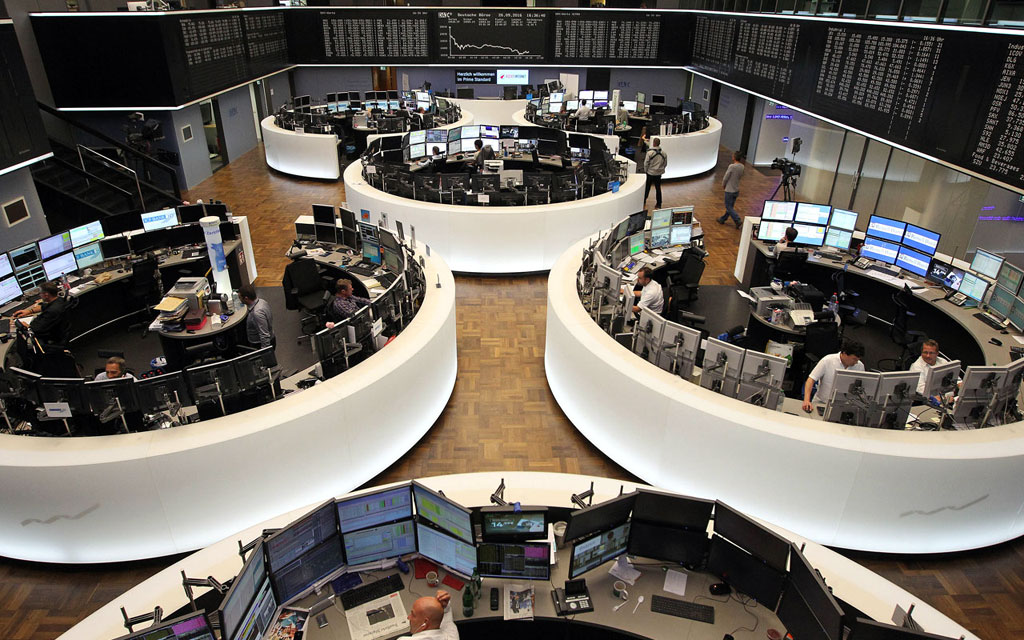 LONDON: Italian stocks fell on Wednesday after reports that two parties seeking to form Italy's next government could seek debt forgiveness, although broader markets were unfazed and focused instead on a pause in surging US bond yields.
LONDON: Italian stocks fell on Wednesday after reports that two parties seeking to form Italy's next government could seek debt forgiveness, although broader markets were unfazed and focused instead on a pause in surging US bond yields.
Rising US borrowing costs have rattled markets globally because of worries they will hurt global demand, but with the dollar flat and Treasury yields off their recent highs on Wednesday, most European stock markets opened higher.
Asian markets had earlier dipped slightly after Pyongyang abruptly called off talks with Seoul, throwing a US-North Korean summit into doubt.
The exception was Italy. Reports suggested the 5-Star and League parties, trying to form a government after inconclusive March 4 elections, had written a draft coalition deal asking for debt forgiveness from the European Central Bank, frightening investors in the euro zone's third-largest economy.
Italian stocks fell half a percent while the pan-European STOXX 600 rose 0.16 percent.
Euro zone banks slid 0.51 percent, although they pulled back from earlier larger losses after a League spokesman said the request for cancellation of the debt was never in the official draft of the government programme.
"The proposal is surreal. Pretending the unilateral cancellation of 250 billion euros of debt bought by the ECB as part of the QE programme... would be absurd," said Giuseppe Sersale, fund manger at Milan-based Anthilia Capital Partners.
"Even if unfeasible, the tone of the debate bolsters expectations there will be a stormy relationship with Europe and a further relaxation of financial discipline."
The difference in Italian government borrowing costs over German rose sharply overnight but later pulled back.
The euro traded up slightly at $1.1846, away from 2018 lows hit on Tuesday, with the single currency seemingly shrugging off concerns about Italian politics.
The MSCI world equity index, which tracks shares in 47 countries, traded flat.
North Korea's cancellation of a June 12 summit in Singapore added to a backdrop of geopolitical worries for financial markets, given it could see tensions on the Korean peninsula flare again and damage US-China efforts to resolve an ongoing trade dispute.
"This will weigh on the Korean reconstruction beneficiaries that have had a strong run on peace and even reunification hopes recently," JPMorgan analysts wrote in a note.
"The broader risk for the region if talks do break down is that Trump no longer feels the need to keep China on side and could escalate trade tensions again."
In currency markets, the dollar paused below five-month highs reached on Tuesday after economic data out of the United States pushed bond yields and demand for the greenback higher.
The US currency has enjoyed a blistering rally in recent weeks as investors focus on a Federal Reserve raising interest rates while central banks elsewhere push back policy tightening.
Strong US retail sales and factory data on Tuesday pushed the US 10-year yield through a key level to hit 3.095 percent, its highest since July 2011, raising worries about higher borrowing costs for companies worldwide.
The 10-year yield was last at 3.065 percent.
Rising US borrowing costs and a stronger dollar are having their biggest impact in emerging markets, where investors are pulling money out, particularly from countries with large deficits and dollar funding needs.
The Indonesian rupiah hit a 2-1/2-year low while the Malaysian ringgit hit a four-month low overnight.
The Turkish lira weakened and approached a fresh record low . President Tayyip Erdogan's comments that he plans to take greater control of the economy have hammered the lira this week.
In commodities markets, gold rebounded after hitting a 4 1/2-month low the previous day on a strong dollar.
Crude oil prices remained near recent highs amid concerns that US sanctions on Iran may restrict crude exports from a major producer.


























Comments
Comments are closed.